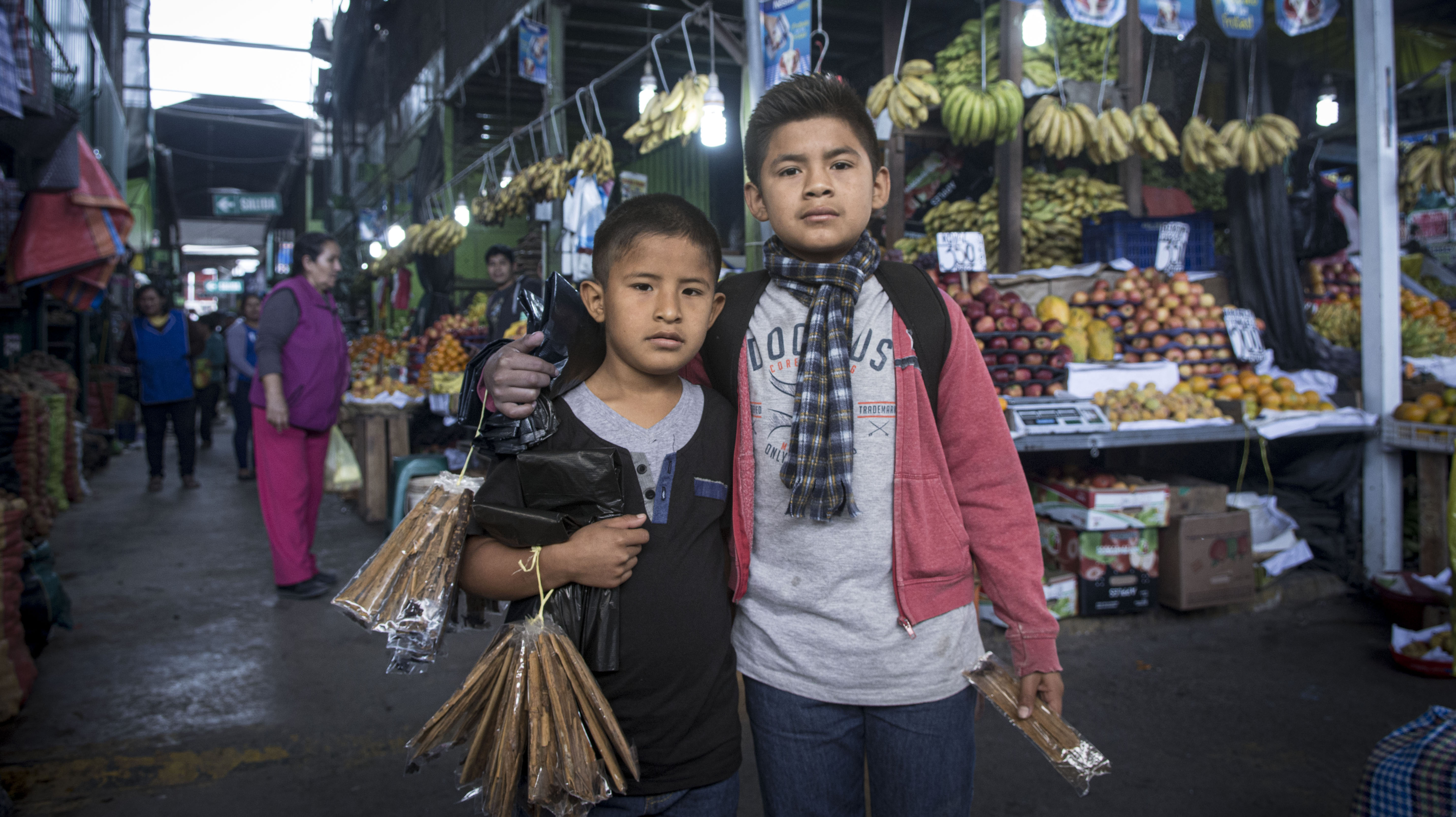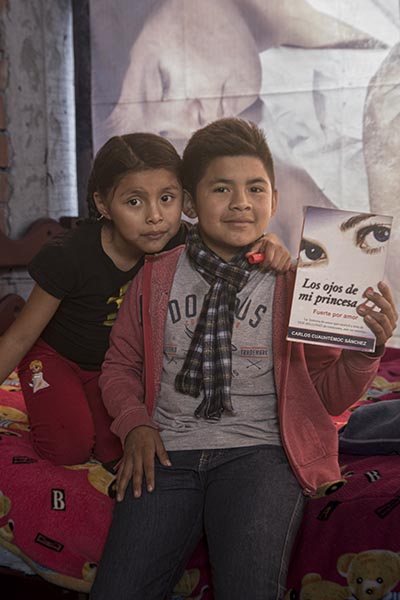Shaping child labour instead of banning it

In many countries,
it is part of everyday life for children to work. Without their help, the families often simply cannot make ends meet. Instead of fighting against this reality, Kindernothilfe in Peru supports a project that turns child labour into vocational training. "Do you need cinnamon? Or maybe a plastic bag?" Nacho and his brother Ronaldo address the customers in the store again and again. Many just shake their heads, some make a defensive hand gesture, they find it annoying to be approached by the children, especially since the two brothers are not the only itinerant salesmen at the market.

Only now and then does one of the passers-by buy something from the children. "Each of us earns about six euros in an afternoon," explains the boy. "Half of it goes to the purchase of materials, the rest is our profit." A profit that they give to their parents for the most part.
Nacho and Ronaldo are twelve and eight years old. They live in Puente Piedra, one of the many dreary suburbs in the north of the Peruvian capital Lima. The further you get away from the chic centre, the smaller the plots become, the greyer and poorer the houses, until finally only makeshift huts can be seen.
Just like the home of Nacho and Ronaldo. Her parents have just bought a piece of land. It is a whole five by ten meters in size. At some point, a small house is to stand on it. But at the moment there is no money for bricks, so the family lives in a hut built of plywood and old advertising banners for the time being.(...)